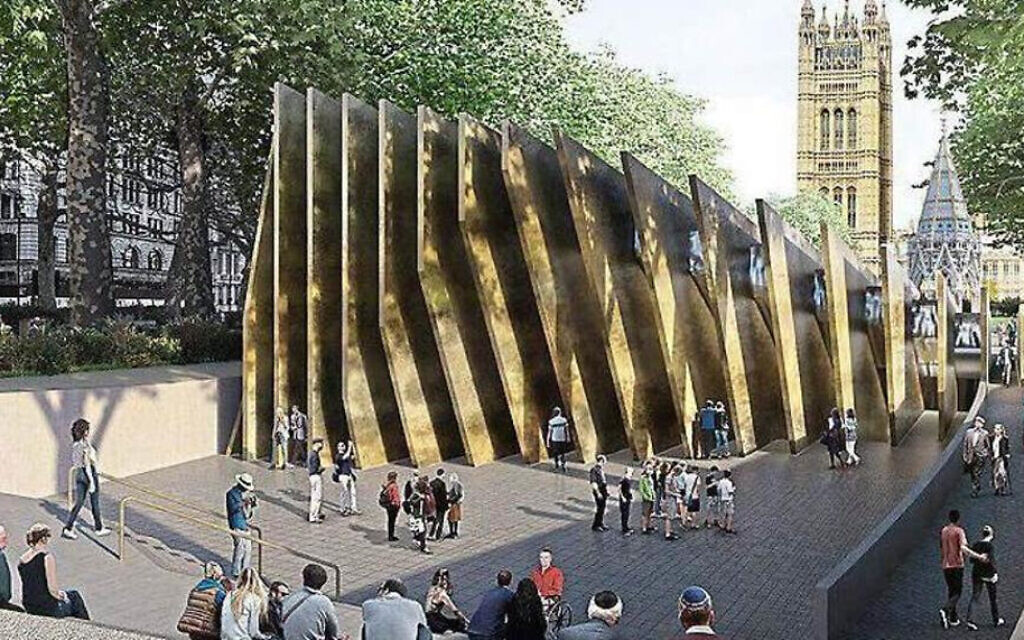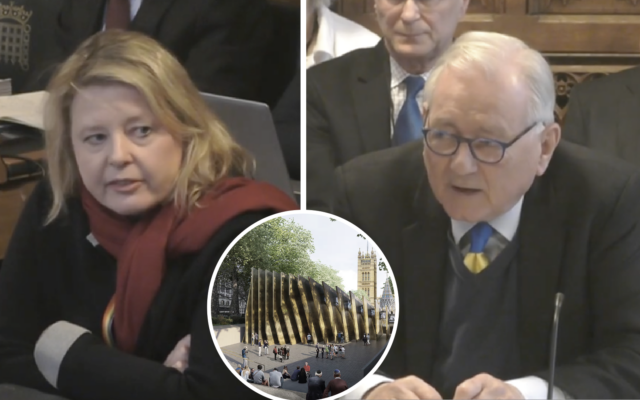Holocaust Memorial Bill: objector compares strategy to Post Office stance on Horizon
Commons select committee hears evidence from opponents of government-backed legislation to clear restriction on building on Victoria Tower Gardens
A series of witnesses gave evidence to the Holocaust Memorial Bill select committee this week about why they think the legislation should be rejected or amended.
The bill, which was introduced to the Commons in February 2023 and passed its second reading in June, is aimed at repealing a statute that prevents the building of a national memorial and learning centre in Victoria Tower Gardens, next to the Palace of Westminster. The 1900 Act provides for the gardens to be kept for use by the public.
On Wednesday, one of the witnesses compared the government’s attempt to push through the bill to the Post Office’s handling of its software problems. “Anyone who makes an unwise initial decision has two options,” said Dorian Gerhold, a historian and former House of Commons clerk. “They can follow the Post Office Horizon strategy of doubling down and ploughing on regardless of legal problems or costs or whatever, or they can reconsider the decision and make a better one.”
Last week the government put forward its view to the committee. Christopher Katkowski KC, for the Department of Levelling Up, Housing and Communities, said the planning inspector had found that the location in the gardens was “absolutely spot on” and that the proposals fulfilled the recommendations of the Holocaust Memorial Commission. The inspector had also found the design to be “of ‘exceptional quality and assurance”. The Board of Deputies has expressed its support for the Holocaust Memorial Bill.
The objectors this week made clear their support for a memorial but aired concerns about its location, size, design, timescale and the security risks it would bring.
Sir Peter Bottomley reminded the committee that the Holocaust Memorial Foundation and government had originally said in 2015-16 that the majority of funding should be spent on education and that the project should be finished within two years. Eight years later “not a penny” had been spent on education and the current programme for a combined memorial and learning centre meant that the project, currently estimated to cost £138.8m, was unlikely to be finished before the last Holocaust survivor has died.
“The cost is really in that box – the large shoebox underneath the memorial,” Bottomley said, referring to the learning centre. “Bluntly, if you are just going to have the memorial, you would not have this one, you would not put it on top of a box, and you would not start saying you want it open before the last Holocaust survivor has died by having a programme which is the longest possible.”
He suggested an alternative path to creating a standalone memorial: a one-month competition for a £20m new design, which could be approved and agreed and put up within two years. The question of a new learning centre could then be dealt with separately but he backed the idea of combining it with the Imperial War Museum’s Holocaust galleries.
Also giving evidence were the MP for Westminster, Nickie Aiken; the Courtauld Institute academic and an expert in Holocaust memorials Prof Christine Stevenson; and Philip Smith, a great-grandson of William Henry Smith (of the book and stationers WH Smith).
Aiken, who described herself as a “great supporter” of a Holocaust memorial, said Victoria Tower Gardens was the wrong location for several reasons. She echoed Bottomley in saying she had always thought the Imperial War Museum was the best place for it, and knew that initially the museum had been keen to host it.
Stevenson agreed that the joining of a Holocaust learning centre to the memorial was not necessary and thought the idea of attaching it was inspired by the Monument to the Murdered Jews of Europe in Berlin. She pointed out that in Berlin – and in Ottawa, Canada, where a Daniel Libeskind-designed monument was unveiled in 2017 – there was a lot of land available, which was not the case in London.
Smith gave evidence about the donation in 1879 by his ancestor towards a garden on land south of Victoria Tower for public use: “He desired that open spaces should be prevented from being built on,” Smith said.
In the afternoon, two members of the House of Lords gave evidence. Lord Blencathra, a member of Conservative Friends of Israel, predicted that the proposals for Victoria Tower Gardens would “fail abysmally”.

As he presented a series of slides demonstrating that most young people get their news and views from social media rather than from physical museums, Lord Blencathra said: “I understand that the proposed bunker under Victoria Tower Gardens will just have copies of the same posters and same videos [found in the Holocaust Galleries at the Imperial War Museum.]” He also provided figures that indicated a physical centre in London would fail to reach over 90 percent of the school children that it needed to get at.
He proposed an amendment to the bill that all education be done virtually, and that funding be increased to £20m a year, index-linked, for online education about the Holocaust. He suggested that the “learning centre” referred to in the bill could be a building that would “house an online team of experts who would be able to issue Holocaust learning to everyone in the UK, 24 hours a day, and update it daily as new lies emerge, which needed to be rebutted”. As for the chosen design for the monument, he said: “Everyone knows that these 23 giant fins are a grotesque, ugly monstrosity.” He said the key number was six million, rather than 22 (the gaps created by the fins that represented the number of countries from where Jews were exterminated).
Lord Carlile of Berriew, the son and brother of Holocaust survivors and who had acted as a reviewer of UK terrorism legislation, said in his evidence that he believed the site presents “a very real terrorism risk”. He also considered that it was out of date, now that recent events in Israel and Gaza had “heightened the danger of action against perceived Jewish interests in London”.
He concluded: “In my judgment, there is a real and present and serious prospect that the site would be regarded as iconic and as tempting by both Islamist and right-wing extremists, given its proximity to this palace and to the lack of any secure or meaningful perimeter and its close proximity both to busy public highways and the river. I am actually astonished that this has not been seen to be a real problem and I believe that the time has come for this warning to be taken seriously.”
The select committee will next week hear from four Holocaust survivors about their opposition to the bill.

Thank you for helping to make Jewish News the leading source of news and opinion for the UK Jewish community. Today we're asking for your invaluable help to continue putting our community first in everything we do.
For as little as £5 a month you can help sustain the vital work we do in celebrating and standing up for Jewish life in Britain.
Jewish News holds our community together and keeps us connected. Like a synagogue, it’s where people turn to feel part of something bigger. It also proudly shows the rest of Britain the vibrancy and rich culture of modern Jewish life.
You can make a quick and easy one-off or monthly contribution of £5, £10, £20 or any other sum you’re comfortable with.
100% of your donation will help us continue celebrating our community, in all its dynamic diversity...
Engaging
Being a community platform means so much more than producing a newspaper and website. One of our proudest roles is media partnering with our invaluable charities to amplify the outstanding work they do to help us all.
Celebrating
There’s no shortage of oys in the world but Jewish News takes every opportunity to celebrate the joys too, through projects like Night of Heroes, 40 Under 40 and other compelling countdowns that make the community kvell with pride.
Pioneering
In the first collaboration between media outlets from different faiths, Jewish News worked with British Muslim TV and Church Times to produce a list of young activists leading the way on interfaith understanding.
Campaigning
Royal Mail issued a stamp honouring Holocaust hero Sir Nicholas Winton after a Jewish News campaign attracted more than 100,000 backers. Jewish Newsalso produces special editions of the paper highlighting pressing issues including mental health and Holocaust remembrance.
Easy access
In an age when news is readily accessible, Jewish News provides high-quality content free online and offline, removing any financial barriers to connecting people.
Voice of our community to wider society
The Jewish News team regularly appears on TV, radio and on the pages of the national press to comment on stories about the Jewish community. Easy access to the paper on the streets of London also means Jewish News provides an invaluable window into the community for the country at large.
We hope you agree all this is worth preserving.






















